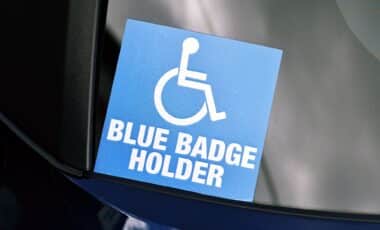The UK government is set to introduce a comprehensive update to vehicle regulations, aligning domestic rules with international standards. This move, which affects petrol, diesel and electric vehicle (EV) drivers alike, aims to enhance road safety and environmental performance across the country.
According to the Department for Transport (DfT), the changes follow extensive consultation with industry stakeholders and are designed to future-proof vehicle safety systems while promoting harmonisation with European and global regulations.
This shift will impact vehicle type-approval requirements, which manufacturers must meet before cars can be sold in Great Britain.
Harmonising Safety Systems and Child Protection Measures
One key aspect of the update involves upgrading emergency call systems in cars, known as eCall, to comply with new international standards.
The DfT highlights that the updated eCall technology will ensure compatibility beyond the planned 2033 shutdown of 2G and 3G mobile networks in the UK.
Industry bodies and manufacturers largely support this measure, seeing it as a step towards creating a unified system with European partners, despite some concerns about potential vehicle price increases.
Additionally, the government plans to mandate compliance with the United Nations Economic Commission for Europe (UNECE) Regulation 157, which governs automated lane keeping systems (ALKS).
While this technology promises improved driving assistance, there are reservations regarding how accident location data collected by ALKS might be shared with insurers.
Another notable inclusion is the revision of ISOFIX regulations, the internationally recognised child seat anchorage system. Respondents to the consultation praised these updates for enhancing child safety in vehicles, reinforcing the government’s commitment to protecting vulnerable road users.
Improving Environmental Performance and Vehicle Functionality
The update also proposes adopting the Vehicle Energy Consumption Calculation Tool (VECTO), which offers more accurate measurements of fuel consumption and CO2 emissions.
According to the DfT, this change will help manufacturers better calculate and report a vehicle’s environmental impact, supporting the government’s goals for cleaner road transport.
Further amendments include updated testing procedures for windscreen defrosting, demisting, and wash/wipe systems to maintain vehicle functionality and safety in all weather conditions. The consultation revealed broad support for these measures, emphasising their role in ensuring clear visibility and safe driving during adverse weather.
The DfT confirmed that these measures will be enacted through a Statutory Instrument, and future updates to type-approval rules will continue to incorporate relevant UNECE regulations.
Although some consumers worry about increased costs, the department noted that harmonising standards internationally is expected to reduce overall expenses, benefits that could be passed on to buyers.
By integrating these international rules, the UK aims to maintain modern, effective standards for vehicle safety, environmental protection and consumer assurance in a rapidly evolving automotive landscape, according to the Department for Transport.









